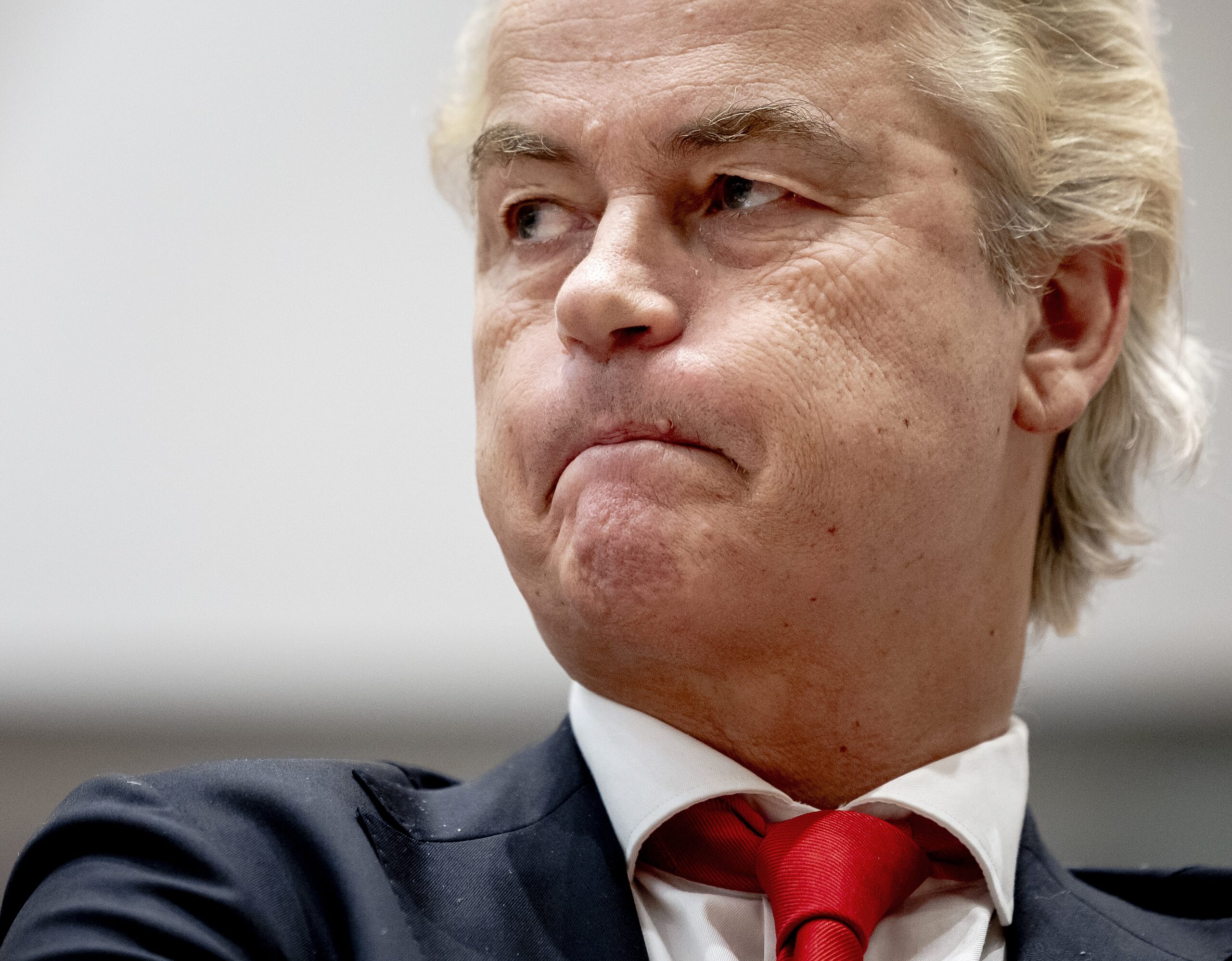Wilders to visit West Bank and meet Netanyahu on trip to Israel

Geert Wilders, leader of the far-right PVV party, will visit the occupied West Bank as part of his controversial visit to Israel which will also include meetings with president Isaac Herzog and prime minister Benjamin Netanyahu.
Wilders’s solo trip as leader of the largest party in the Dutch coalition has once again put him at loggerheads with the cabinet.
Foreign affairs minister Caspar Veldkamp made clear that the visit was not sanctioned by the government and if Wilders set foot in an illegal settlement on the West Bank it would clash with cabinet policy. But he added: “Members of parliament can go on visits to foreign countries. They very often do so.”
Prime minister Dick Schoof also refused to be drawn into a row, saying he saw “no reason whatsoever” to discuss Wilders’ visit in cabinet, despite Veldkamp saying he would raise it in the ministerial council.
Veldkamp had been due to travel to Israel for an official visit this month, but his invitation was withdrawn after he said the Dutch government would honour arrest warrants issued by the International Criminal Court in The Hague against Netanyahu and former defence minister Yoav Gallant.
Wilders responded to the arrest warrants by saying “the world has gone mad” and Israel should be supported in its efforts to defend itself against “barbaric terrorists who hide in hospitals and schools.”
The PVV leader met Israeli technology minister Gila Gamliel in Tel Aviv on Sunday and is also expected to meet the speaker of the Knesset, Amir Ohana, and the ministers for defence, foreign affairs and energy.
Wilders worked on a kibbutz in the West Bank in the 1980s before embarking on a political career with the right-wing liberal VVD party.
In the wake of the attacks on Israeli football supporters in Amsterdam following the Europa League match between Ajax and Maccabi Tel Aviv last month, he blamed Dutch Moroccans for instigating a “pogrom” on the streets of the capital and called for deportations.
Photographs later issued by police suggested the group of suspects was more diverse and the public prosecution service has since dropped plans to charged those responsible with terrorism. A spokesman said the attacks were mainly motivated by “anger, frustration and sadness over the situation in Israel and Gaza.”
Thank you for donating to DutchNews.nl.
We could not provide the Dutch News service, and keep it free of charge, without the generous support of our readers. Your donations allow us to report on issues you tell us matter, and provide you with a summary of the most important Dutch news each day.
Make a donation